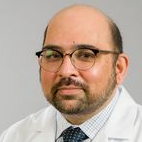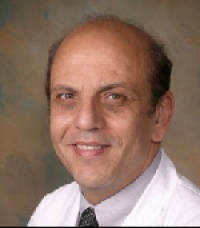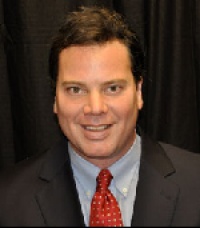
Dr. Wasim A. Dar, MD, PhD, FACS
Transplant Surgeon
6431 Fannin St Msb 6. 256 Houston TX, 77030About
Dr. Wasim Dar is a transplant surgeon practicing in Houston, TX. Dr. Dar specializes in organ transplants, and may perform surgeries involved with the transplant of organs such as the kidneys, liver, pancreas, intestines, heart, lungs, tracheal tissue and more. As a transplant surgeon, Dr. Dar performs long, complex surgeries that might take many hours to complete. Transplant surgeons remove the organ from the donor as well as transplant the organ in the recipient. Dr. Dar works with transplant physicians, nurses and surgical residents, and is responsible for and complications which may arise during or after surgery.
Education and Training
Case Western Reserve University School of Medicine medical degree 2000
University of Wisconsin PhD 2007
Board Certification
general surgery
Provider Details

Dr. Wasim A. Dar, MD, PhD, FACS's Expert Contributions
How serious is abdominal hernia surgery?
Sorry for the delay in reply. The answer to your question is with all things in surgery dependent on context What kind of hernia are you getting fixed and what approach should you take a. In general the most common type of hernias are inguinal (groin hernias) which affect men 75% of the time and women 25% of the time. In this day and age, inguinal hernia repair is quite common and the risks of complications should be very very low. The preferred approach to fixing inguinal hernias is laparoscopically and with mesh. The reason for laparoscopic/robotic is that the recovery time is much shorter than an open incision (2 weeks versus 4-6 weeks) and less discomfort but should be performed by a surgeon who does laparoscopic hernia repair as a routine. The mesh is necessary to reduce the risk of the hernia coming back. In open and laparoscopic/robotic repairs of hernias without mesh, the recurrence rates (rate of it coming back) is around 15% without the use of mesh and 2-4% with the use of mesh. There are some reasons a laparoscopic repair is not attempted and open repair is preferred such as the hernia being one that has been fixed multiple times, is very large, or is in a person who is obese. In general the risk of mesh infection is also very low in inguinal hernia repair. b. The other common types of hernias are ventral (or incisional) hernias. These are hernias which are along the abdominal wall, usually in the front wall that happen because of natural weakness in the abdominal wall (less common) or from prior surgeries (more common). The approaches to these also are either open or laparoscopic/robotic. As these hernias are more varied in size, location, and need for mesh, the risk of complications is a bit higher than in inguinal hernias and the use of mesh which reduces hernia recurrence is counterbalanced by an increased risk of infection at the wound sites. c. Hernia repair should be at your age, assuming you are healthy a very safe procedure. READ MORE
Expert Publications
Data provided by the National Library of MedicineFellowships
- Emory University Hospital abdominal transplant surgery 2012
Dr. Wasim A. Dar, MD, PhD, FACS's Practice location
Wasim Dar, MD
6431 Fannin St Msb 6. 256 -Houston, TX 77030Get Direction
Dr. Wasim A. Dar, MD, PhD, FACS's reviews
Write ReviewPatient Experience with Dr. Dar
Media Releases
Get to know General Surgeon, Dr. Wasim A. Dar, who serves patients in Hartford, Connecticut.
Dr. Dar is a seasoned general and transplant surgeon practicing through Hartford HealthCare Medical Group at Hartford Hospital Transplant & Comprehensive Liver Center in Hartford, Connecticut. He remains affiliated with Hartford Hospital and is licensed to practice in the states of Connecticut, Wisconsin, and Texas.
Dr. Dar is a 2000-graduate of the Case Western Reserve University School of Medicine. Following a two-year residency in general surgery conducted at the University of Wisconsin Hospitals and Clinics, Dr. Dar continued with a second general surgery residency served at the same educational venue (2007 - 2010). Moreover, he joined Emory University Hospital, where he completed his fellowship in abdominal transplant surgery (2010 - 2012). In addition, in 2007, he acquired his PhD degree with Honors in Comparative Biological Sciences (Immunology) from the University of Wisconsin.
The doctor attained board certification in general surgery through the American Board of Surgery (ABS). The ABS is an independent, non-profit organization located in Philadelphia, Pennsylvania, founded for the purpose of certifying surgeons who have met a defined standard of education, training, and knowledge.
Transplant surgery refers to surgical procedures in which tissue or an organ is transferred from one area of a person's body to another area, or from one person (the donor) to another person (the recipient).
Recommended Articles
- What is the Central Venous Catheter?
The central venous catheter is a type of a catheter that is normally placed in a vein of large size. It is also called the central venous line or central line. Central venous catheters can be fitted in veins found in the chest, groin, arms, and neck. This type of catheter is often used in the...
- Why Do the Benefits Outweigh the Risks of Circumcision?
Male circumcision has been a highly debated topic with arguments both for and against it. Various religious and traditional practices across the globe favor circumcision. However, there are also large sections of the population in other parts of the world where circumcision is not recommended by...
- How to Prepare for a Laparoscopy
OverviewLaparoscopy is a type of endoscopic procedure that will allow doctors to look inside your abdomen using a surgical telescope. The telescope is known as the laparoscope. The laparoscope is equipped with a front camera that transmits the images captured in high definition to a nearby video...
- Reasons Why You Need a Laparoscopy
Laparoscopy involves the inspection of the abdominal organs or the female pelvic organs through the use of a thin, lighted tube that is inserted through an incision made in the belly. It is used to locate complications such as adhesions, cysts, infections, and fibroids. The tube used in the...
- How to Prepare For Carpal Tunnel Surgery
Carpal tunnel syndrome refers to a condition affecting the median nerve in your wrist. When you get this syndrome, you experience tingling, numbness, and pain radiating to your arms and hands, and it becomes difficult to use your arm especially around the wrist. The condition happens when carpal...
- Reasons Why You Need a Tonsillectomy
A tonsillectomy is a surgical procedure performed to get rid of one's tonsils. The same procedure can be used to remove the adenoids. For adults, the administration of a local anesthesia to numb the throat is enough. However, children may have to be given general anesthesia, which makes them...
Nearby Providers
- Dr. Richard J Knight M.D.6550 Fannin St Houston TX 77030
- Dr. Ahmed Osama Gaber MD6550 Fannin St Houston TX 77030
- Dr. Bob H Saggi M.D.6410 Fannin St Houston TX 77030
- Dr. Barry D Kahan M.D.6411 Fannin St Houston TX 77030
- Dr. Charles T Vanburen M.D.6411 Fannin St Houston TX 77030
- Dr. Brian Bruckner M.D.6550 Fannin St Houston TX 77030
Nearest Hospitals
MEMORIAL HERMANN TEXAS MEDICAL CENTERl
6411 FANNIN HOUSTON TX 77030CHI ST LUKE'S HEALTH BAYLOR COLLEGE OF MEDICINE MEl
6720 BERTNER HOUSTON TX 77030METHODIST HOSPITAL,THEl
6565 FANNIN HOUSTON TX 77030CONNECTICUT CHILDRENS MEDICAL CENTERl
282 WASHINGTON STREET HARTFORD CT 6106ST FRANCIS HOSPITAL & MEDICAL CENTERl
114 WOODLAND STREET HARTFORD CT 6105










